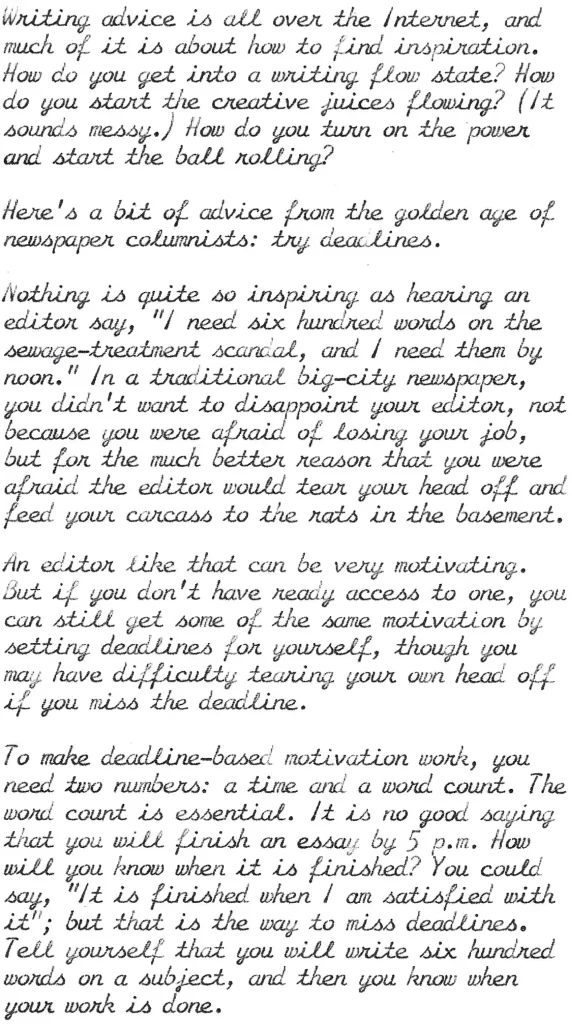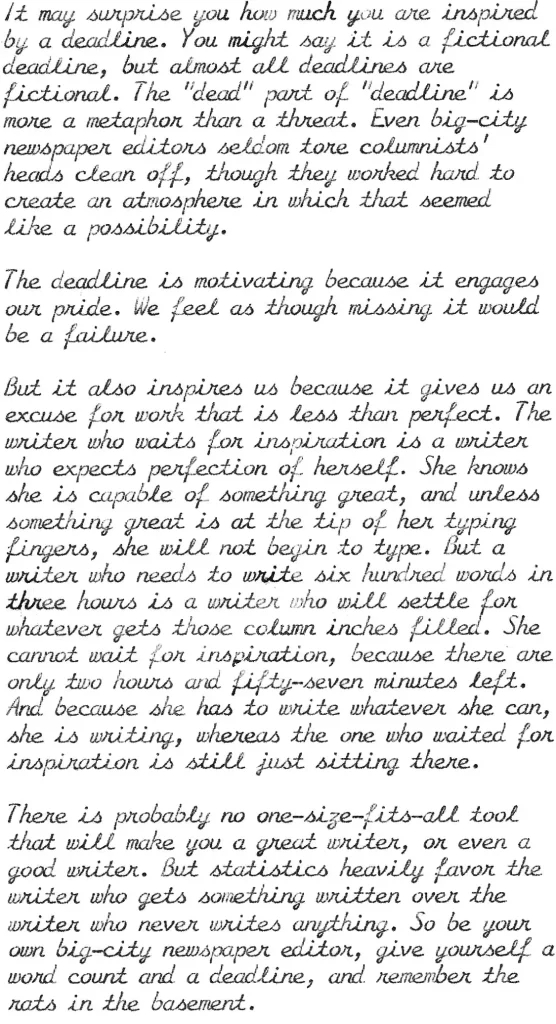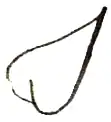

The typewriter is a 1971 Hermes 3000.
Transcribed below.
Writing advice is all over the Internet, and much of it is about how to find inspiration. How do you get into a writing flow state? How do you start the creative juices flowing? (It sounds messy.) How do you turn on the power and start the ball rolling?
Here’s a bit of advice from the golden age of newspaper columnists: try deadlines.
Nothing is quite so inspiring as hearing an editor say, “I need six hundred words on the sewage-treatment scandal, and I need them by noon.” In a traditional big-city newspaper, you didn’t want to disappoint your editor, not because you were afraid of losing your job, but for the much better reason that you were afraid the editor would tear your head off and feed your carcass to the rats in the basement.
An editor like that can be very motivating. But if you don’t have ready access to one, you can still get some of the same motivation by setting deadlines for yourself, though you may have difficulty tearing your own head off if you miss the deadline.
To make deadline-based motivation work, you need two numbers: a time and a word count. The word count is essential. It is no good saying that you will finish an essay by 5 p.m. How will you know when it is finished? You could say, “It is finished when I am satisfied with it”; but that is the way to miss deadlines. Tell yourself that you will write six hundred words on a subject, and then you know when your work is done.
It may surprise you how much you are inspired by a deadline. You might say it is a fictional deadline, but almost all deadlines are fictional. The “dead” part of “deadline” is more a metaphor than a threat. Even big-city newspaper editors seldom tore columnists’ heads clean off, though they worked hard to create an atmosphere in which that seemed like a possibility.
The deadline is motivating because it engages our pride. We feel as though missing it would be a failure.
But it also inspires us because it gives us an excuse for work that is less than perfect. The writer who waits for inspiration is a writer who expects perfection of herself. She knows she is capable of something great, and unless something great is at the tip of her typing fingers, she will not begin to type. But a writer who needs to write six hundred words in three hours is a writer who will settle for whatever gets those column inches filled. She cannot wait for inspiration, because there are only two hours and fifty-seven minutes left. And because she has to write whatever she can, she is writing, whereas the one who waited for inspiration is still just sitting there.
There is probably no one-size-fits-all tool that will make you a great writer, or even a good writer. But statistics heavily favor the writer who gets something written over the writer who never writes anything. So be your own big-city newspaper editor, give yourself a word count and a deadline, and remember the rats in the basement.

Leave a Reply